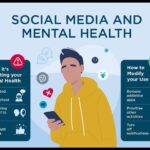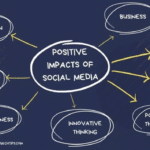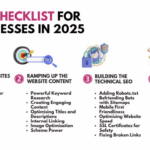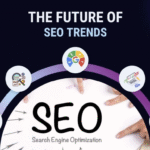Introduction
Social media has become an inseparable part of our daily routine. From the moment we wake up and check notifications to the last scroll before bed, platforms like Facebook, Instagram, Twitter (X), TikTok, and LinkedIn shape how we communicate, learn, and even perceive ourselves. What started as a way to connect with friends has now expanded into a global ecosystem influencing politics, business, education, and culture. But while social media brings countless opportunities, it also carries risks that deserve closer attention.
A New Way of Communicating
Before social media, communication was largely limited to face-to-face interactions, phone calls, or emails. Today, conversations happen instantly across borders. A message sent from India reaches someone in the U.S. in seconds. Social media has not only sped up communication but also transformed its style—emojis, memes, GIFs, and short videos often convey emotions better than long paragraphs.
However, this constant connectivity comes with downsides. Misinterpretations are common, and the pressure to stay “always online” can lead to stress. Despite these issues, social media continues to revolutionize how humans share ideas and emotions.
Influence on Lifestyle and Culture
Social media deeply impacts lifestyle choices, from fashion and food to travel and entertainment. Platforms act as cultural trendsetters—think viral dance challenges on TikTok or Instagram food reels that make local dishes global sensations.
Culture is no longer defined by geography alone; it is shaped by hashtags and global communities. For instance, K-pop spread worldwide largely due to YouTube and Twitter, proving the power of social media in cultural exchange.
Yet, cultural homogenization is also a concern. While global exposure is enriching, local traditions sometimes risk being overshadowed by global trends.
Education and Knowledge Sharing
Another major transformation lies in education. Students and professionals alike turn to YouTube tutorials, LinkedIn Learning, and Twitter threads for quick insights. Online study groups on Facebook or Telegram connect learners from across the world. Social media enables access to knowledge that was once locked behind classrooms and libraries.
On the flip side, misinformation spreads just as quickly as real knowledge. Fake news, unverified health tips, and manipulated content can mislead millions. This makes digital literacy essential for every user.
The Business and Marketing Revolution
For businesses, social media is no longer optional—it is the frontline of customer interaction. Brands use Instagram for visual storytelling, LinkedIn for professional networking, and Twitter for real-time customer support. Small businesses, in particular, benefit from the low-cost marketing power of social media, often reaching global audiences without big budgets.
Influencer marketing has added a new dimension. Consumers are more likely to trust recommendations from creators they follow than traditional ads. Social commerce—shopping directly through apps—is now a multi-billion-dollar industry.
However, the line between genuine recommendations and paid promotions can blur, raising ethical concerns about transparency.
Politics and Social Awareness
Social media has given citizens a louder voice. Movements like #MeToo, Black Lives Matter, and climate strikes gained momentum through hashtags. Political campaigns increasingly rely on digital outreach, targeting voters with tailored content.
At the same time, echo chambers—where users only see content that matches their beliefs—can deepen polarization. Algorithms designed to maximize engagement often prioritize sensational content, which can mislead or divide societies.
Mental Health and Well-Being
One of the most debated impacts is on mental health. Social media provides support communities, raises awareness about mental health issues, and helps people find solidarity. But it also fuels comparison, body-image issues, and FOMO (fear of missing out). Studies link excessive usage to anxiety, depression, and reduced attention spans.
The key is balance. Setting screen-time limits, curating positive content, and practicing digital detox can reduce the negative impact.
Privacy Concerns
Every like, comment, and search leaves a digital footprint. Social media platforms collect massive amounts of personal data for targeted advertising. While this helps businesses offer personalized experiences, it raises questions about consent and privacy.
Data breaches, identity theft, and misuse of personal information are real dangers. Users must stay alert, use strong privacy settings, and think twice before sharing personal details online.
The Way Forward
Social media is here to stay, but its impact depends on how consciously we use it. Governments and platforms must address issues like fake news, cyberbullying, and data misuse. Users, on their part, must learn digital literacy, emotional balance, and privacy protection.
In the coming years, the integration of AI, augmented reality, and virtual reality will make social media even more immersive. Imagine attending concerts, shopping, or even working entirely through social platforms. The possibilities are exciting, but they also require responsible innovation.
Conclusion
Social media is not just a tool; it is a parallel world influencing every aspect of our lives—communication, culture, business, politics, and mental health. Its impact is both positive and negative, and the challenge lies in maximizing benefits while minimizing harm. Ultimately, social media reflects human behavior: it can connect or divide, inform or mislead, empower or exploit. The choice is ours.






Leave a Reply